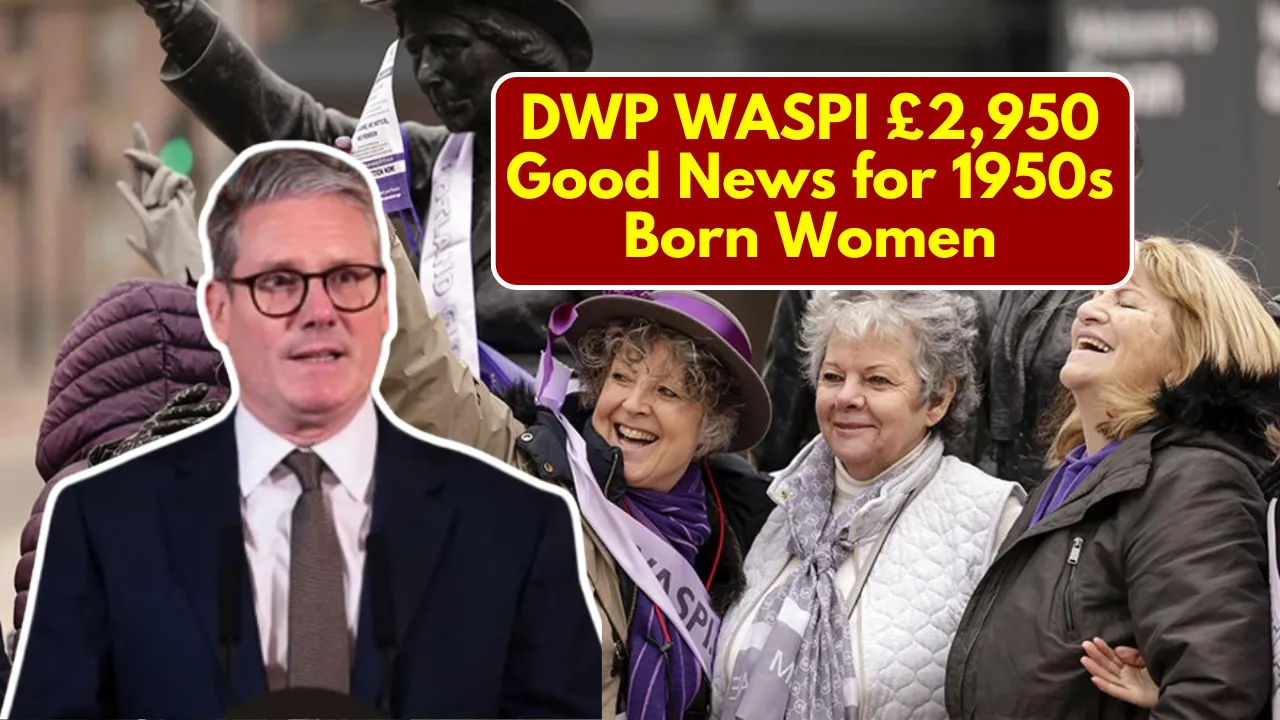WASPI Compensation 2025: WASPI Compensation 2025 brings long-awaited hope for thousands of women across the UK who were born in the 1950s. These women, who are part of the WASPI movement—Women Against State Pension Inequality—faced unexpected delays to their retirement due to sudden changes in the State Pension age. The government’s failure to communicate these changes clearly left many financially and emotionally burdened during what should have been their retirement years.
A key report by the Parliamentary and Health Service Ombudsman has acknowledged these failures and recommended compensation. As a result, calls for justice and repayment have reached a critical stage, with campaigners urging the government to take immediate action. In this article, we break down the facts around WASPI Compensation 2025, who it affects, what the report says, and what could happen next.
WASPI Compensation 2025
The term WASPI Compensation 2025 refers to the push for a one-time payment of £2,950 to women affected by the State Pension age changes. These women were not properly informed by the Department for Work and Pensions (DWP) about increases to their pension age, leading to severe financial hardship for many. The Ombudsman’s report, released in March 2024, confirmed that the DWP committed maladministration in how they handled the communication.
Campaigners are now demanding that the government respond with a formal apology and implement a fair compensation scheme. The goal is to have this plan in place by March 21, 2025, giving justice to the over one million women impacted by this oversight.
Overview Table: WASPI £2,950 Compensation 2025
| Key Detail | Information |
| Compensation Suggested | £2,950 |
| Who It Affects | Women born in the 1950s impacted by State Pension age changes |
| Main Issue | Poor communication by the DWP |
| Official Report | Parliamentary and Health Service Ombudsman (March 2024) |
| Findings | DWP guilty of maladministration and harm |
| Government Response | Still under review |
| Campaign Urgency | Over 1 million affected; one woman dies every 13 minutes |
| Goal | Compensation scheme and apology by March 21, 2025 |
What Happened to the WASPI Women?
In the late 1990s and early 2000s, the UK government passed legislation to equalise the State Pension age for men and women. This meant increasing the retirement age for women from 60 to 65, and later to 66. However, the changes were introduced without clear and timely communication.
Many women born in the 1950s discovered late in life that their retirement plans were no longer valid. They expected to retire at 60 but were suddenly told they had to wait several more years. This unexpected delay caused severe financial issues, with many having to work longer, use up their savings, or rely on others for support.
Recent Update for WASPI £2,950 Case
The release of the Ombudsman’s report in March 2024 has strengthened the WASPI campaign. The report clearly stated that the Department for Work and Pensions failed in their duty to inform women properly. As a result, many suffered avoidable hardship during a critical phase of their lives.
The report did more than point out the failure—it called for action. It urged the UK government to apologise and to put in place a compensation scheme. Campaigners are now focusing on getting a concrete plan before the deadline in March 2025.
The Ombudsman’s Report and Findings
This official report by the Parliamentary and Health Service Ombudsman confirmed what many already knew: the DWP had not communicated the pension changes properly. The result was thousands of women facing financial and emotional stress because they were unprepared.
The report didn’t just highlight the problem. It also offered a solution—a recommended payment of £2,950 per person as a fair amount to help ease the loss and distress caused. This amount has now become the central demand of the WASPI movement for 2025.
Public and Political Support
The WASPI campaign is not just being pushed by affected women. It has gained backing from many Members of Parliament, as well as strong public support. Polls show that nearly 70% of people agree that these women deserve compensation.
Several MPs, especially those on the Work and Pensions Select Committee, have openly voiced support. Their involvement is keeping the issue in the spotlight and putting pressure on the government to act before more time passes. Campaigners highlight the urgency, noting that one WASPI woman dies every 13 minutes.
Government’s Current Position
As of now, the government has acknowledged the Ombudsman’s findings but has not committed to a compensation scheme. Officials say the report is under review and discussions are ongoing. However, without a clear plan, many women continue to feel ignored.
The government has said it is focused on retirement support and financial security for older citizens. But campaigners argue that real support means taking responsibility and providing direct compensation for the failures of the past.
Why Compensation Matters
The financial impact on WASPI women has been severe. Many were forced to keep working longer than expected or had to change their retirement plans overnight. Some lost thousands of pounds in expected income. Others were left without proper support or savings.
But this fight is about more than just money. It’s about recognition and fairness. These women followed the rules, worked hard, and planned carefully. They deserved better communication and support from the system that now owes them an apology—and proper WASPI Compensation 2025.
FAQs – WASPI Compensation 2025
1. Who are the WASPI women?
They are women born in the 1950s who were affected by changes to the State Pension age without proper notice or explanation.
2. What did the Ombudsman’s report say?
The report found the DWP guilty of maladministration for failing to inform women about pension changes, causing serious harm.
3. Has the government confirmed compensation?
Not yet. The government says it is reviewing the findings but has not announced an official compensation scheme.
4. How many women are affected?
Over 1 million women are believed to be impacted, with the urgency growing as time passes.
5. What is the campaign calling for?
A formal apology and a compensation payment of £2,950 for each affected woman, with action taken by March 21, 2025.











